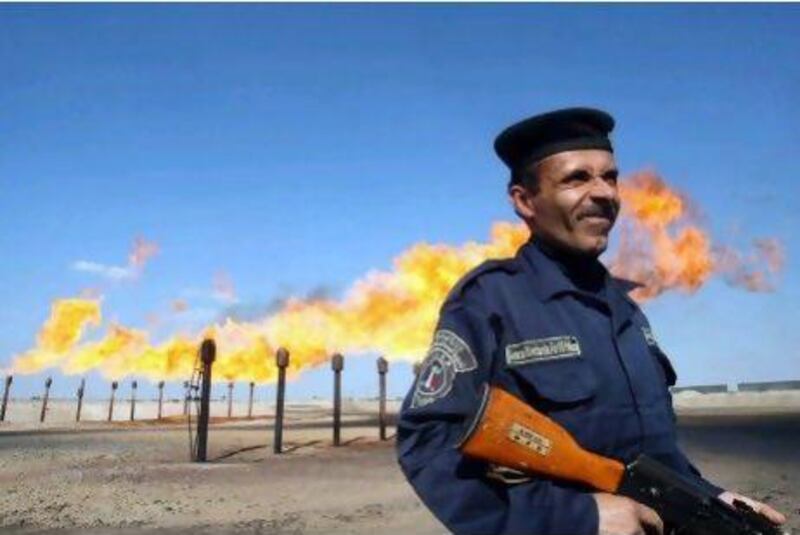Baghdad could sign a long-awaited US$12 billion (Dh44.07bn) joint venture contract with Royal Dutch Shell this month to capture and market gas from Iraq's southern oilfields.
The Anglo-Dutch company is awaiting approval to harvest about 700 million cubic feet a day of gas that is currently being burnt at the cluster of supergiant oilfields near Basra.
The gas, which is pumped along with crude, is being treated as a waste by-product of oil production due to the country's lack of infrastructure for gas processing and transport. A preliminary deal for the gas was signed in 2008, but a formal agreement has been held up since last September.
"We have agreed that we will have a meeting this month in Baghdad with the ministry of oil to finalise the draft," Dr Hussain al Shahristani, the Iraqi deputy prime minister for energy issues, said in Istanbul.
Cabinet approval of the deal would take another few weeks, Dr al Shahristani predicted.
Baghdad hopes to use gas from the oilfields as fuel to boost Iraq's inadequate supply of electricity to the national grid. Residents of most Iraqi communities receive power from the grid for only a few hours each day.
The chronic situation, which has dragged on for the eight years after the US-led occupation of Iraq, has provoked widespread social discontent that last summer boiled over into violent demonstrations in southern Iraq.
But if the gas is to fuel domestic power production, Baghdad will need to ensure many new generating stations are built.
While agreeing to prioritise supplies to the domestic market, Shell has proposed using floating gas liquefaction facilities to export some of the gas from southern fields, at least as a temporary measure. The plan, however, has run afoul of domestic politics in a country with vocal resource nationalists opposed to gas exports.
To help sway local opinion, Shell officials have stressed that putting an end to flaring would help reduce air pollution in the Basra area. Capturing the gas would also help Iraq reduce carbon emissions, possibly making the project partners eligible to receive tradable carbon credits under a UN programme.
Capturing the associated gas production from oilfields would be a quicker way to boost Iraq's gas supplies than developing gasfields from scratch - a strategy Baghdad is also pursuing.
"The priority is capturing what is being flared," Mounir Bouaziz, the Shell vice president for the Mena region, told Reuters. "That will be much quicker to develop because of the existing facilities and infrastructure."
In preparation for the expected deal, Shell last week started seeking bidders for a contract to build a 50 megawatt power station near Khor al Zubair in southern Iraq.





